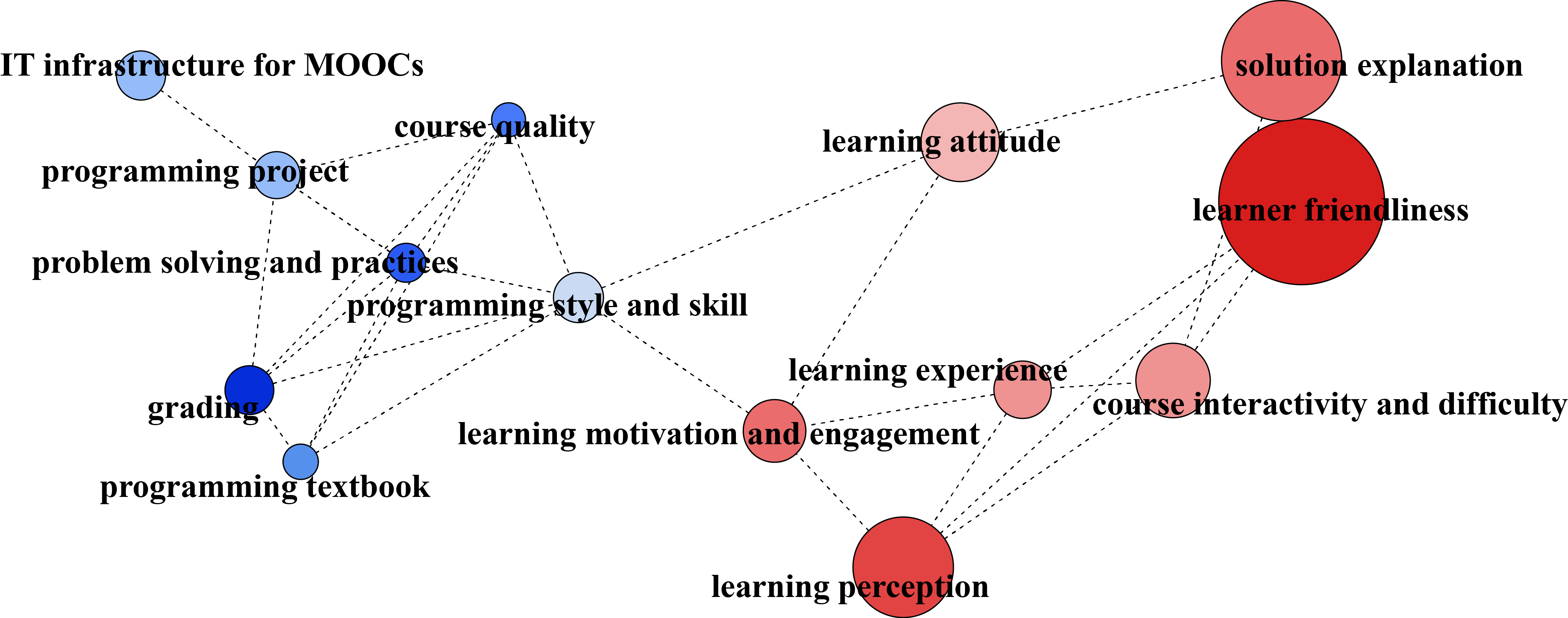 2022-01-20
2022-01-20

Understanding the reasons for Massive Open Online Course (MOOC) learners’ complaints is essential for MOOC providers to facilitate service quality and promote learner satisfaction. The current research uses structural topic modeling to analyze 21,692 programming MOOC course reviews in Class Central, leading to enhanced inference on learner (dis)satisfaction. Four topics appear more commonly in negative reviews as compared to positive ones. Additionally, variations in learner complaints across MOOC course grades are explored, indicating that learners’ main complaints about high-graded MOOCs include problem-solving, practices, and programming textbooks, whereas learners of low-graded courses are frequently annoyed by grading and course quality problems. Our study contributes to the MOOC literature by facilitating a better understanding of MOOC learner (dis)satisfaction using rigorous statistical techniques. Although this study uses programming MOOCs as a case study, the analytical methodologies are independent and adapt to MOOC reviews of varied subjects.
Keywords: MOOC course reviews; programming courses; learner dissatisfaction; structural topic model; text mining

了解大规模在线开放课程(MOOC)学员投诉的原因对于提高课程服务质量和学员满意度至关重要。本研究采用结构主题模型分析美国课程中央网站(Class Central)中21692门编程相关的MOOC课程的评论数据以识别学员(不)满意度的影响因素。本文发现,相比于正面评论文本,有四个话题更常见于负面评论文本中。本研究还探讨了引起学员不满意度的因素在不同评分等级的MOOC中的分布差异。研究结果表明,对于高评分MOOC课程而言,学员的投诉内容主要包括问题解决速度、实操练习和编程教材;而对于低评分MOOC课程而言,学员投诉内容主要涉及作业批改评分和课程质量。本研究有助于更好地理解MOOC学员的满意度,进而促进高质量MOOC课程设计。本研究虽然仅使用编程相关的MOOC课程作为案例分析,但其所用的分析方法相对独立,适用于分析不同学科的MOOC评论本文。
关键词:MOOC课程评论;编程课程;学员不满意度;结构主题模型;文本挖掘
